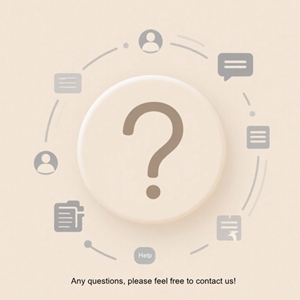

Q&A for LUMIS:
1. Q: What are ceramic tiles? What are their advantages and applications?
A: Ceramic tiles are made from clay fired at high temperatures, offering advantages like waterproofing, durability, and easy maintenance. They are ideal for indoor/outdoor walls and floors.
2. Q: Where are mosaic tiles suitable? What design styles are available?
A: Mosaic tiles are perfect for kitchens, bathrooms, and feature walls, available in modern, vintage, and artistic designs.
3. Q: What is flexible porcelain? How does it differ from traditional tiles?
A: Flexible porcelain is a lightweight, crack-resistant material with high flexibility, making it suitable for curved surfaces and easy installation compared to rigid traditional tiles.
4. Q: What is the purpose of edge trim? How to choose the right one?
A: Edge trims protect edges and enhance aesthetics. Select based on material (e.g., PVC, metal) and color to match your tiles or mosaics.
5. Q: Are ceramic tiles slip-resistant? Are they suitable for bathrooms?
A: Slip-resistant ceramic tiles feature specially treated surfaces with high anti-slip ratings, making them ideal for wet areas like bathrooms and kitchens.
6. Q: Are mosaic tiles easy to clean and maintain?
A: Yes, mosaic tiles have smooth surfaces and minimal grout lines, requiring only routine cleaning for low-maintenance upkeep.
7. Q: Can flexible porcelain be used for exterior walls? How durable is it?
A: Yes! Flexible porcelain offers UV resistance and weather durability, making it ideal for exterior walls with a lifespan of 10+ years.
8. Q: Is edge trim installation complicated? Does it require professional help?
A: Edge trims are easy to install, and many products are DIY-friendly. For complex projects, professional installation is recommended for optimal results.
9. Q: Do you offer customized mosaic or flexible porcelain designs?
A: Yes, we provide custom mosaic patterns, flexible porcelain colors, and sizes to meet personalized project requirements.
Q: What is the chemical resistance of mosaic tiles? Are they suitable for swimming pools?
A: Our glass/ceramic mosaics pass ISO 10545-13 testing with UA/UB ratings (no visible change). Low water absorption (<0.2%) glass mosaics are recommended for pools due to superior chlorine resistance.
10. Q: How is flexibility achieved in flexible porcelain? What is its flexural strength?
A: Flexible porcelain uses modified mineral fillers and polymers with oriented stretching creating micro-pores. Flexural strength ≥8MPa (ASTM C1167) with 50mm bending radius, suitable for curved walls seismic structures.
11. Q: How to address thermal expansion differences between metal edge trims tiles?
A: Our 6063-T5 aluminum trims (CTE 23.2×10⁻⁶/℃) designed with 1.5mm expansion gaps elastic silicone sealants compensate for CTE mismatch ceramic tiles (7-9×10⁻⁶/℃).
12. Q: What applications correspond to anti-slip ratings R9/R10/R11?
A: Per DIN 51130: R9 (6-10° incline) dry interiors; R10 (10-19°) kitchens/bathrooms; R11 (19-27°) pool decks/factories. Our anti-slip tiles micro-engraved surfaces achieve R11 rating.
13. Q: What is the weatherability flexible stone? Does it pass UV aging tests?
A: Our flexible porcelain passes 3000h QUV-A testing (ISO 4892-3) ΔE<2.0 tensile strength retention>85%. HALS UV stabilizers ensure 10-year outdoor performance without chalking.
14. Q: What technical details edge trim anchoring systems include?
A: Dual mechanical/chemical anchoring: stainless steel clips withstand 50N/mm shear force; epoxy adhesives bond strength ≥3MPa. All accessories ISO 9001 certified.

